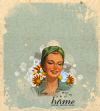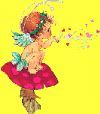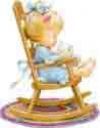|
ESL Forum:
Techniques and methods
in Language Teaching
Games, activities
and teaching ideas
Grammar and
Linguistics
Teaching material
Concerning
worksheets
Concerning
powerpoints
Concerning online
exercises
Make suggestions,
report errors
Ask for help
Message board
|
ESL forum >
Ask for help > HELP!!
HELP!!
|

mariaelaine

|
HELP!!
|
|
Hi, can anyone tell me what such words that go together are called? Example spic and span; toss and turn; peace and quiet ect.
Thanks. |
26 Nov 2009
|
|
|
|

Pinky Makus

|
I would like to know that as well.
I would also like to know why we seem to put nouns in a certain order like Mom and Dad (not Dad and Mom) or brothers and sisters (instead of sisters and brothers) and up and down. Why not down and up....?
|
26 Nov 2009
|
|
|

canterina

|
|
I believe they are called collocations :-) |
26 Nov 2009
|
|
|

Pinky Makus

|
|
Thanks! I was just reading about those (words that go together). But I still wonder about the order....
|
26 Nov 2009
|
|
|
|
|

makibg15

|
|
They are usually coled collocations or word pairs.
|
26 Nov 2009
|
|
|
|
|

mariamit

|
|
Actually I think they �re called colloquial pair-phrases. They are often referred to as noun pairs, verb pairs, set phrases or even fixed phrases. In linguistics they are usually refered to as a binomial pair phrase. For more info see http://en.wikipedia.org/wiki/Binomial_pair
I hope that helps |
26 Nov 2009
|
|
|

sabrina27

|
|
I think they are called binomials!
|
27 Nov 2009
|
|
|

Olindalima ( F )

|
Hi, You all,
Hi, you, Lady,
in Portuguese, we say "o c�u e o inferno" , This is your" "Himmel und H�lle" ".
Western societies are orderd ( if I may say so ) in some traditional patterns, such as, good and evil, male and female, and, as you say so often, just MHO, all these sentences fly to some remote backgrounds we all have, either we agree with them or not. We organize things this way, �cause we have a cultural background. I bet you have never said a thing like this a : " A woman and a man ". You , for sure would say " A man and a woman "
In Portuguese it is very hard to say something like this:
" I have a dog "
�cause I can have a dog, or, better , a she dog.
Silly, isn �t it, let me explain: In English , you say a dog or a she dog, right?. How often do you use this "she dog" ? It seems so artificial.
In Portuguese we have two different words words ( c�o - male / cadela - female )
It just happens that "CADELA " is somehow a slightly offending word. You can �t say that, THAT LADY, over there, for instance, is a cadela. It �s quite offensive. So, we , almost all of us, probably,I Portugal, we all have gogs ( this means, we don �t state we have females, just a general idea, something about a fellow with four paws... oh, yes, a dog. Never,would anyone ask: Oh, so you have a she dog ( cadela)
No one around here has " Cadelas = she dogs " , we all have " c�es = dogs "
But, in fact I DO HAVE TWO SHE DOGS, here, snorring by my side, but I never say I have two she dogs ( cadelas ) , I say I have two dogs (males ), BUT I DON?T.
WELCOME TO THE REAL MALE WORLD.
Today, it just happens to be the ... something... like Women �s right of something / or better, RUn away with the ,...something men �s violence , or... forgive me, somethiong about it.
WOMEN, Rise up, rise and shine, even what we teach, smells man.
LOVE YOU ALL.....
WOMEN
and MEN
the only thing I can remember that goes against is the famous
" Excuse me, LADIES, FIRST . ( LOL )
HUGS TO ALL OF YOU
linda
|
27 Nov 2009
|
|
|

Jayho

|
|
Hi Silke and Pinky Makus
The website I gave earlier made a brief reference to your question. There are no rules or explanations - it just is.
Even David Crystal says this (or at least that �s how I interpret it). He goes further to say that some aren �t really collocations at all and are instead fixed expressions or idioms, such a spic and span and run amok.
There are different schools of thought on what they are all called and it appears that there is basically no rule for word order.
It �s an intersting discussion.
Cheers
Jayho
|
27 Nov 2009
|
|
1
2
Next >
|